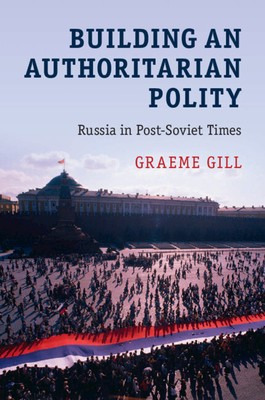
- We will send in 10–14 business days.
- Author: Graeme Gill
- Publisher: Cambridge University Press
- ISBN-10: 1107562422
- ISBN-13: 9781107562424
- Format: 15.3 x 23 x 1.5 cm, minkšti viršeliai
- Language: English
- SAVE -10% with code: EXTRA
Reviews
Description
Graeme Gill shows why post-Soviet Russia has failed to achieve the democratic outcome widely expected at the time of the fall of the Soviet Union, instead emerging as an authoritarian polity. He argues that the decisions of dominant elites have been central to the construction of an authoritarian polity, and explains how this occurred in four areas of regime-building: the relationship with the populace, the manipulation of the electoral system, the internal structure of the regime itself, and the way the political elite has been stabilised. Instead of the common 'Yeltsin is a democrat, Putin an autocrat' paradigm, this book shows how Putin built upon the foundations that Yeltsin had laid. It offers a new framework for the study of an authoritarian political system, and is therefore relevant not just to Russia but to many other authoritarian polities.
EXTRA 10 % discount with code: EXTRA
The promotion ends in 22d.06:23:38
The discount code is valid when purchasing from 10 €. Discounts do not stack.
- Author: Graeme Gill
- Publisher: Cambridge University Press
- ISBN-10: 1107562422
- ISBN-13: 9781107562424
- Format: 15.3 x 23 x 1.5 cm, minkšti viršeliai
- Language: English English
Graeme Gill shows why post-Soviet Russia has failed to achieve the democratic outcome widely expected at the time of the fall of the Soviet Union, instead emerging as an authoritarian polity. He argues that the decisions of dominant elites have been central to the construction of an authoritarian polity, and explains how this occurred in four areas of regime-building: the relationship with the populace, the manipulation of the electoral system, the internal structure of the regime itself, and the way the political elite has been stabilised. Instead of the common 'Yeltsin is a democrat, Putin an autocrat' paradigm, this book shows how Putin built upon the foundations that Yeltsin had laid. It offers a new framework for the study of an authoritarian political system, and is therefore relevant not just to Russia but to many other authoritarian polities.


Reviews